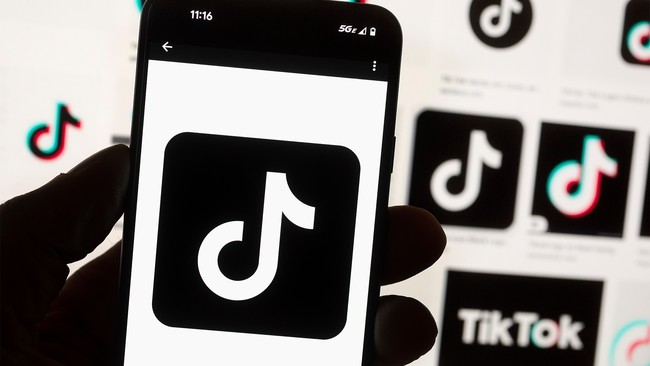
The Senate has been known as “the world’s greatest deliberative body,” supposedly because they take forever to get anything done.
In March, the House passed a bill that would force the sale of the Chinese social media app TikTok to an American company within six months of the president’s signature or face a total ban in the United States.
The bill has languished in the Senate despite overwhelming support for the sale because several key Senate players were not on board.
But a legislative gambit by Speaker Mike Johnson has now forced the issue in the Senate.
Johnson attached the TikTok bill to legislation that would supply arms to Ukraine and Israel, as well as humanitarian aid to Gaza. The quartet of bills would be offered in the Senate as one, making it very difficult to pick one part of the bill to defeat.
It would be next to impossible for Senate Democrats to vote against the bill. And that includes Democrats like Senate Commerce Committee Chair Maria Cantwell, who was previously dubious of the legislation, and Senators Ted Cruz and Marco Rubio, two key Republicans sitting on the Senate Intelligence and Commerce Committees, who had also previously been on the fence about a TikTok ban.
Even if the bill passes and Biden signs it, it will still have to pass constitutional muster in the federal courts. Does it unfairly target one company? Does it violate due process? The ACLU and other advocacy groups are lining up to oppose the bill in court.
Another question is: what will China do? China reportedly ordered Apple to remove Meta’s WhatsApp and Threads from its app store Friday. The move was symbolic, considering the fact that both apps are illegal in China. But Chinese retaliation must be considered.
CIA Director William Burns isn’t sure that the legislation is the right answer but he thinks there’s “cause for concern” with the app.
“I think it’s a genuine concern, I think, for the US government in the sense that because the parent company of TikTok is a Chinese company, the Chinese government is able to… insist upon extracting the private data of a lot of TikTok users in this country and also to shape the content of what goes on to TikTok as well to suit the interests of the Chinese leadership,” Burns said.
One addition to the bill might make all the difference; the period that Bytedance has to sell TikTok to a domestic company has been extended from six months to a year. Senator Cantwell cited that change as key to her decision to support the bill.
Cantwell had raised other constitutional concerns — dealing with the bill specifically naming one company and due process issues — but in the latest negotiations she appeared to concede to just the one-year extension. She told POLITICO, “Could it be improved? Yes,” but she supported the House changes.
The one-year extension was agreed to when Cantwell and Warner met with Schumer on Tuesday night, according to a Senate staffer who was granted anonymity to speak more freely.
One potential sticking point: Sen. Rand Paul (R-Ky.), who has opposed the bill from the start as government overreach, and has First Amendment concerns for the 170 million Americans who could potentially lose access to the app. He also opposes the larger foreign aid package the bill is now attached to.
TikTok ban supporters were never going to get Rand Paul on their side anyway because of the legislative vehicle it was packaged in. Paul can certainly muck up the works but he won’t be able to stop the legislation.
It should pass next week.











